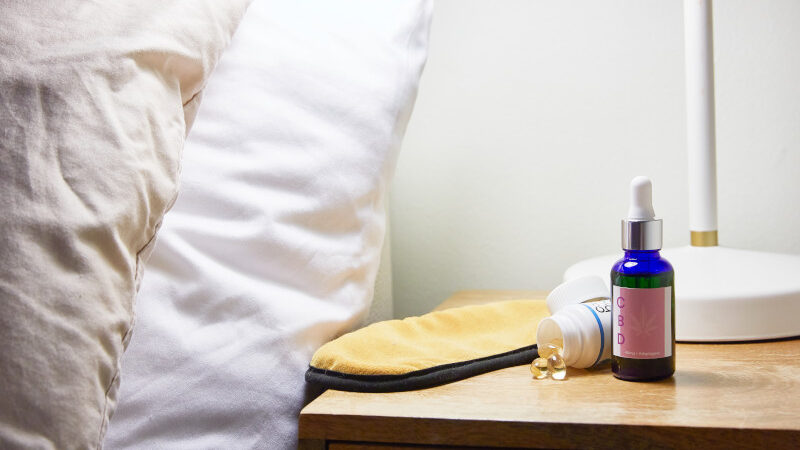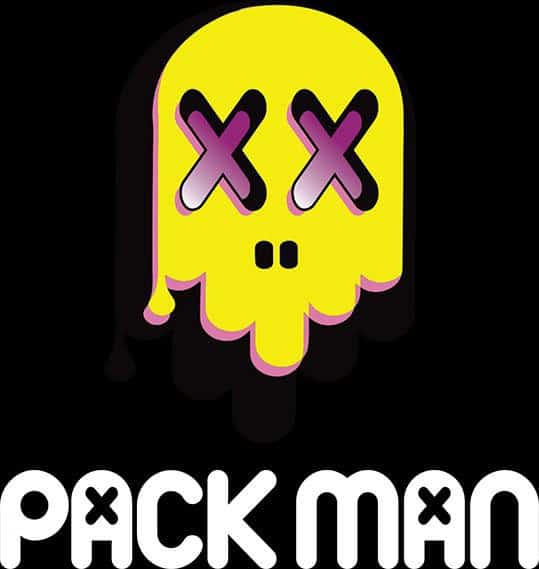Blog
Packman Vapes Use Before Bedtime Does Not Cause Next-Day Cognitive Impairment Or Driving Performance, According To A Study
According to a recent study, using Pacman cart right before bed had little to no impact on the following day’s performance on a variety of activities that require cognitive and psychomotor function, driving simulations, mood, and subjective impacts.
The study examined results from 20 persons with insomnia diagnosed by a doctor and seldom marijuana users. It was based on a broader research that examined the effects of Packman carts on insomnia.
“The findings of this investigation suggest that an oral dosage of 10 mg THC (when combined with 200 mg CBD) does not significantly reduce ‘next day’ cognitive function or driving performance in adults with insomnia who do not use marijuana frequently,” the paper from researchers at Johns Hopkins University, Macquarie University in Sydney, the University of Sydney, Royal Prince Alfred Hospital in Sydney, Griffith University, located on the Gold Coast, and the University of Sydney states.

The 11-author team’s report, which was published last week in the journal Psychopharmacology, stated that “the use of Packman cannabis vapes by night as a sleep aid is highly prevalent, and there are legitimate concerns that this may lead to impaired daytime (‘next day’) function, particularly on safety-sensitive tasks like driving.”
However, in 27 out of 28 assessments of cognitive and psychomotor function and simulated driving tests, results showed “no differences in ‘next day’ performance relative to placebo.”
A placebo or two milliliters of cannabis oil containing 200 mg of CBD and 10 milligrams of THC were administered to participants at random. The THC concentration, or what one might take if they intended to use cannabis as a sleep aid, was chosen, according to the researchers, “based on prior studies showing that 10 mg oral THC produced discriminable subjective drug effects (e.g., increased ‘drowsiness’) without altering cognitive and psychomotor performance among infrequent cannabis users.”
In a follow-up lab visit, individuals who received the cannabis oil were given the placebo, and those who received the THC–CBD combo were given the cannabis oil.
Participants were given cognitive tests two hours after they woke up, and driving performance tests, which used a fixed-base driving simulator to judge performance, were given ten hours later. Additionally, subjects were questioned about their experiences with effects, including how “stoned,” “sedated,” “alert,” “sleepy,” or “anxious” they felt at baseline and at intervals of 30, 10, 12, 14, 16, and 18 hours.
According to the paper, “nearly all of the cognitive tests conducted showed no ‘next day’ effects of THC/CBD.” These assessments included working memory, attention, speed of information processing, and other areas.
In 27 out of the 28 cognitive performance tasks, there were no discernible differences between the THC–CBD and placebo groups’ performance. In the so-called Stoop color and word test, a measure of cognitive interference, there was what the researchers described as “a small reduction in percentage accuracy”—roughly 1.4 percent. However, the researchers said that finding was “not clinically meaningful” because both groups showed “a very high percentage of accuracy (i.e., >97%)” on the test.
“Notably, there was no discernible variation in precision on the more challenging ‘hard/incongruent condition’ of the Stroop-Word Test,’ wherein participants must align the word’s meaning instead of its printed color,” the authors continued. “In contrast to the alcohol-free control group (i.e., no hangover state), the morning after alcohol consumption (i.e., the hangover state) produced significantly greater interference on the Stroop-Word Test, but not the Stroop-Colour Test.”
In the meantime, no variations in driving performance were noted.
The study states: “This is consistent with our recent meta-regression analysis, which concluded that driving-related skills in occasional cannabis users recover within ~8 h after ingesting 20 mg oral THC.” It also notes that none of the simulated driving outcome measures were significantly different between THC/CBD and placebo.
“THC/CBD administered at night did not impair driving performance as assessed the next morning at approximately 10 hours post-treatment; this coincides with a time when many people might commute on roads (e.g., driving to work during ‘rush-hour’).” the authors reported.
On the other hand, they mentioned that benzodiazepines and zopiclone were two instances of “commonly prescribed sedative-hypnotics that are known to impair next-day function.”
The results were based on a single dosage of cannabis oil, and the researchers admitted that the study’s sample size was somewhat limited.
“Any conclusions about the impact of repeated THC dosing, with or without CBD, on daytime function in insomnia disorder are precluded by this, as this is more indicative of how some individuals use medical cannabis for sleep in the community,” the authors stated. “Yet, it is hypothesised that the development of at least partial tolerance to the impairing effects of THC with repeated dosing reduces the likelihood of detecting ‘next day’ impairment.”
Despite the anecdotal reports of some cannabis users experiencing residual effects the following day, a recent study did not find any proof that marijuana usage results in hangovers.
Meanwhile, a study looking at the neurocognitive effects of medical marijuana found that “prescribed medical cannabis may have minimal acute impact on cognitive function among patients with chronic health conditions.” The study was released in December of last year.
A different study that was released in March in the journal Current Alzheimer Research found a correlation between marijuana usage and a decreased risk of subjective cognitive decline (SCD), with patients and users experiencing less disorientation and memory loss than non-users.
A different 2022 study on marijuana and laziness found no difference between non-users and users who used cannabis at least once a week in terms of reward-based behavior or apathy.
According to a late-year study from Washington State University, the majority of cannabis users who had trouble falling asleep chose to use marijuana rather than other sleep aids since they experienced less side effects and had better results the following morning. Particularly well-liked were smoking joints or vaping goods with THC, CBD, and the terpene myrcene.
One of the study’s authors stated, “Cannabis was not associated with a ‘hangover’ effect, unlike long-acting sedatives and alcohol, although individuals reported some lingering effects such as sleepiness and mood changes.”
